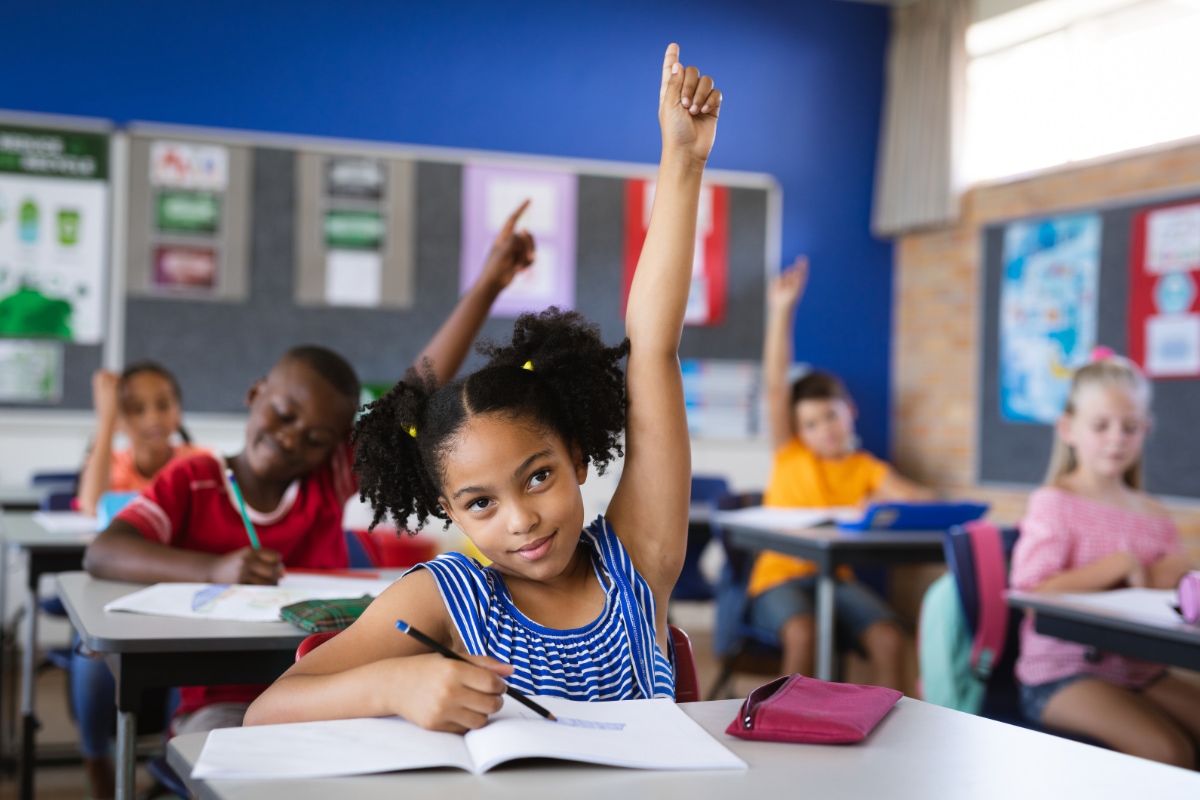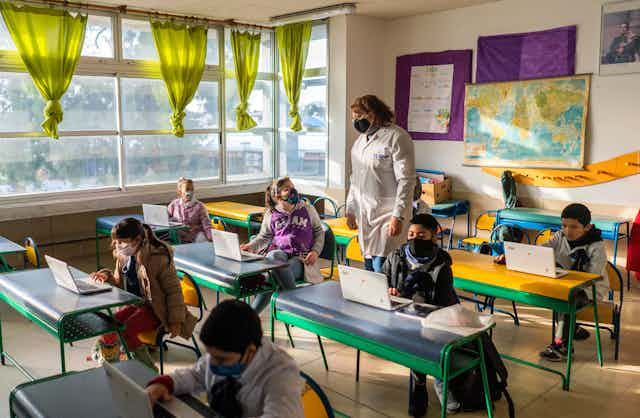Sign up with the Movement to Save Temecula Schools: Neighborhood Action Needed!
Sign up with the Movement to Save Temecula Schools: Neighborhood Action Needed!
Blog Article
How Schools Play an Essential Duty in Shaping Future Leaders and Trendsetters
By integrating project-based learning and interdisciplinary researches, academic organizations test trainees to assess and synthesize complicated information. Educators serve as coaches, leading trainees and nurturing their potential, while extracurricular tasks additionally develop management skills and strength.
Promoting Crucial Assuming
In today's swiftly progressing globe, cultivating crucial assuming within schools has actually come to be paramount. As society grapples with progressively complicated international difficulties, the ability to examine, review, and manufacture details is necessary. Institutions play a critical function in developing these skills, preparing trainees to navigate and deal with multifaceted troubles with educated, reasoned decisions.
To grow critical thinking, educators employ various pedagogical techniques that motivate active discovering and intellectual involvement. Class conversations, problem-based understanding, and Socratic questioning contribute in advertising logical and reflective idea procedures. By challenging students to question presumptions and consider several viewpoints, these methods guarantee a much deeper understanding of subject matter past memorizing memorization.
Additionally, incorporating vital believing across the educational program strengthens its relevance and applicability in varied contexts. Subjects such as mathematics, science, background, and literary works each offer one-of-a-kind chances to create students' critical faculties. For instance, assessing historical events requires recognizing and reviewing sources context, while clinical inquiry demands strenuous hypothesis testing and evidence-based thinking.
Eventually, instilling important thinking skills in students equips them with the cognitive tools necessary for lifelong knowing and adaptability. It is with this fundamental proficiency that future leaders will certainly have the ability to innovate, fix issues, and contribute meaningfully to culture.
Urging Creativity
Embracing creativity within instructional frameworks galvanizes trainees to assume beyond standard borders and explore cutting-edge options. By incorporating imaginative undertakings and creativity workouts into the educational program, colleges cultivate a setting where creativity and imaginative idea are valued. This approach not only enhances the academic experience but likewise outfits pupils with the capability to tackle real-world obstacles in unique methods.
School can promote imagination with varied methods such as project-based understanding, interdisciplinary researches, and the consolidation of arts and technology. Project-based understanding, for example, motivates students to use their expertise in practical, typically joint, jobs that demand inventive problem-solving abilities. Interdisciplinary research studies enable trainees to attract links between different topics, therefore expanding their point of views and enhancing their imaginative capacities.
Furthermore, supplying trainees with opportunities to engage with arising modern technologies, such as coding and digital style, even more nurtures their imaginative possibility. These tasks motivate trainees to experiment, stop working, and repeat, which are critical parts of the innovative procedure (Save Temecula Schools). By keeping an encouraging atmosphere where trial and error is motivated, institutions can ensure that pupils establish the self-confidence to go after cutting-edge ideas
Basically, supporting creativity in instructional settings is important for forming future leaders and trendsetters capable of attending to complex worldwide problems with ingenuity.
Promoting Cooperation

Applying group-based understanding components and participating tasks allows pupils to experience the characteristics of synergy firsthand. This not only prepares them for the collaborative nature of modern work environments yet additionally supports leadership high qualities as they often need to handle functions such as job supervisors or team organizers. Furthermore, collaboration in the classroom can damage down social obstacles and promote inclusivity, guaranteeing that each pupil feels valued and heard.
Furthermore, integrating technology can further sustain collaborative efforts. Tools like shared interactive systems and electronic work spaces make it possible for trainees to work with each other effectively, also outside the class. As trainees develop these joint skills, they are much better outfitted to take on complex difficulties and innovate, preparing for their future duties as pioneers and leaders.
Duty of Educators as Coaches

Mentorship involves tailored focus, where teachers determine and support specific strengths and address weaknesses. Save Temecula Schools. With individually interactions, educators can customize their suggestions and support to meet each pupil's distinct requirements, cultivating a feeling of self-confidence and resilience. This personalized approach cultivates a development mindset, motivating trainees to watch failings as chances for finding out and development
In addition, educators act as role versions, showing the values of honesty, empathy, and determination. Their mindsets and actions supply a blueprint for students to emulate, instilling a feeling of honest obligation and social understanding. By developing a inclusive and supportive class atmosphere, instructors enable pupils to create social abilities that are vital for reliable leadership.
In significance, the mentorship offered by teachers lays a foundational structure for the advancement of future leaders, equipping them with the expertise, skills, and worths required to stand out in an ever-evolving globe.
Influence of After-school Activities
When integrated effectively right into the educational structure, extracurricular tasks significantly boost pupil growth and leadership capacity. These activities offer pupils with chances to check out interests beyond the traditional curriculum, fostering a well-rounded skill set.
Furthermore, extracurricular participation urges creativity and technology. Pupils participated in dramatization, discussion, or songs clubs find out find this to think critically and approach troubles Click This Link from diverse perspectives. These experiences instill self-confidence, making it possible for trainees to voice their concepts and take campaign in numerous setups. By collaborating with peers from different backgrounds, pupils also develop empathy and communication abilities, essential traits for future leaders.
Research shows that pupils entailed in such programs have a tendency to have higher grades and much better presence records. Hence, schools that focus on a balanced strategy to education and learning, integrating durable extracurricular programs, are extra most likely to produce leaders and pioneers equipped to satisfy the obstacles of the future.

Verdict
In final thought, institutions dramatically shape future leaders and trendsetters by supporting important thinking, creativity, and collaboration among pupils. By fostering an encouraging atmosphere that values specific toughness and team effort, institutions outfit pupils with the necessary abilities to navigate future difficulties and drive advancement.
As students develop these joint abilities, they are better equipped to tackle complex difficulties and innovate, laying the groundwork for their future duties as leaders and innovators.
By cultivating vital reasoning and analytical skills, educators help pupils browse complex difficulties, preparing them for leadership duties in various fields.
By collaborating with peers from various histories, students additionally establish go to this website compassion and communication abilities, necessary traits for future leaders.
In final thought, schools dramatically form future leaders and pioneers by nurturing crucial reasoning, creative thinking, and partnership among pupils. By fostering an encouraging environment that values specific strengths and teamwork, institutions equip pupils with the essential skills to browse future difficulties and drive technology.
Report this page